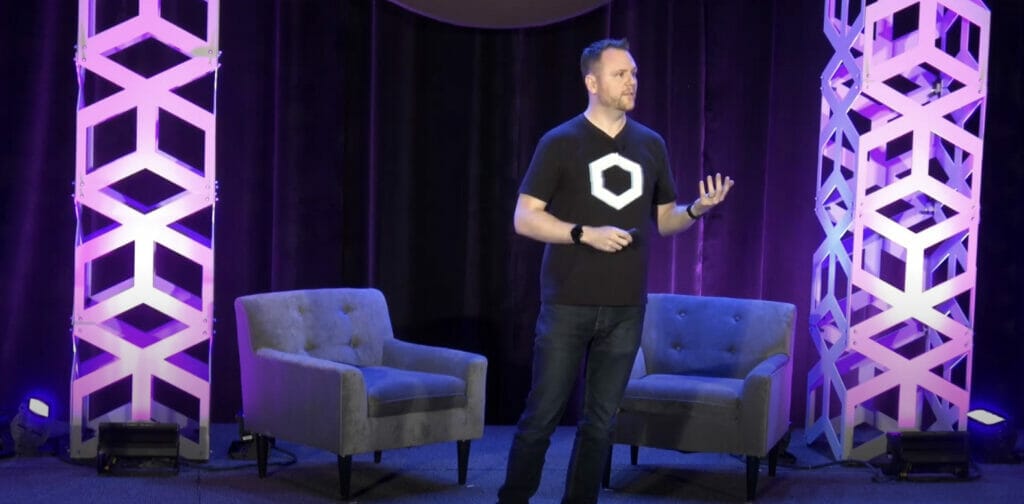At this year’s CoinDesk Consensus conference, Chainlink Labs’ Head of Developer Relations, Stephen Fluin, delivered an analysis of how individual Chainlink products work together to enable the trust-minimized applications that create a world powered by cryptographic truth.
He began by offering a case study for why the world needs trust-minimized systems, which strikes at the heart of every millennial childhood: the $24 million-dollar McDonald’s Monopoly scam.
When systems like multimillion-dollar sweepstakes are controlled by centralized entities, participants have no choice but to trust that the system won’t be corrupted or manipulated. However, as Chainlink co-founder Sergey Nazarov pointed out in a recent presentation on Chainlink Economics 2.0, today’s “average teenager” understands why trust in centralized platforms is naive.
Blockchains offer cryptographic guarantees – user control, transparency, immutability – that drastically reduce the need for trust in a single entity. But, as Fluin explained, blockchains are inherently isolated and deterministic, and therefore require decentralized infrastructure to deliver real-world data and attributes like randomness on-chain in a trust-minimized way.
This is where Chainlink’s technology comes in.

Chainlink Data Feeds
In order for blockchains to receive real-world data, they need an oracle. However, using a single, centralized oracle presents a strong point of failure. Chainlink solves the oracle problem with over 1,000 unique decentralized oracle networks that consist of independent node operators delivering full market coverage from decentralized and centralized sources, free and premium providers, aggregators and exchanges.
Chainlink Data Feeds use volume-based averaging instead of time-weighted averaging to deliver the most accurate real-time price data to multiple different blockchains without a single point of failure.
Chainlink VRF
Just as Chainlink’s decentralized oracle networks solve the oracle problem, Chainlink VRF (Verifiable Random Function) solves the problem of randomness which, Fluin explained, is also a fundamental problem in the world of blockchains. This is because blockchains are highly deterministic environments.
Many of the applications that run on blockchains, however, especially blockchain-based games, rely on randomness to build exciting and variable web3 worlds. Chainlink VRF provides a secure source of random number generation (RNG) that is resistant to manipulation like miner extractable value (MEV).
Chainlink Keepers
Smart contracts consist of many essential time- and event-based functions that are necessary to keep the smart contract running smoothly and securely. Chainlink Keepers is a decentralized service that allows developers to reliably automate regular smart contract triggers without the resources and risks associated with performing these operations manually or through centralized systems. As such, Chainlink Keepers allows developers to increase decentralization while lowering costs and freeing resources to refine their application’s core innovation.
Any API
Any API allows developers to build smart contracts that can access essentially any external data feed on the web. Fluin described Any API as “one of the best fulfillments of this vision of a world powered by cryptographic truth” because it allows developers and Chainlink hackathon participants to dream big when it comes to reimagining key web2 experiences in the cryptographically guaranteed world of web3.
Watch Stephen Fluin’s full presentation during Chainlink on stage at Consensus 2022.


